You’re reading How to Live—an inquiry into the psychological forces that shape us, and how to stop being run by them.
Through deep research, personal storytelling, and hard-won insight, I challenge the myth of normalcy and offer new ways to face old struggles.
This work is reader-supported. If it speaks to you, consider a paid subscription for deeper insight, off-the-record writing, and seasonal in-person gatherings.
You can also donate any amount.
My Notes: The New York Times Well Festival
I was lucky to be invited to the first annual Well Festival as a VIP guest by Lori Lebovich, editor of the Well Section of the New York Times.
It was an all-day event, and today, I’m sharing all the notes I took and some of the thoughts I had.
Building a Life of Joy
Actress, producer and entrepreneur Tracee Ellis Ross sat down with Lori Leibovich to reflect on what it means to build a life rooted in joy, touching on aging with grace, navigating beauty standards and the inner strength that fuels her resilience. This candid, empowering exchange celebrated self-expression, evolution and the power of presence.
With Tracee Ellis Ross. Moderated by Lori Leibovich.
THE NOTES I TOOK:
Joy is different from happiness. Happiness you can get at a 7-11. Joy is something that you earn and work for. Joy has legs. Joy has feet. Joy has roots. Joy is an attitude, perspective, and a lens through which to live and look at life. Joy is a choice, like gratitude. Name what lights up your heart. Instead of “I feel overwhelmed,” she says, “My plate is wonderfully full.”
The cultural narrative of women undermined her self-worth and joy until she realized it was somebody else’s idea. She still gets caught up in it, but doesn’t believe her life is unworthy because she doesn’t have children or a partner.
There’s a false narrative around how your beauty makes you worthy, and that’s garbage.
My body’s point is not that people think it’s pretty. The emotional and spiritual aspect of getting over this is delicious/fantastic. My favorite place to be is in my body.
Meditation is defined as doing what you’re doing while doing it.
I don’t pretend I’m not afraid. I’m afraid and do it anyway.
There’s a tendency to think you have to do more to be worth it, but you can do enough, and that can be enough.
Love: Some people want to be swept away, but I don’t. I want to keep my feet on the ground. Love is different from chemistry. I want a relationship that has chemistry and love.
Sunday is her day to follow her heart around (love this).
You may not get everything you want, but know what you want.
Keep embracing the joy of what is coming instead of viewing it as a hardship.
THE THOUGHTS I HAD:
Refreshing to hear a celebrity talk (albeit briefly) of being a childfree, unpartnered woman of a certain age in this society.
(I’d love a panel on this specific type of isolation for next year.)
Finding Meaning in the Face of Adversity
Writer and cancer survivor Suleika Jaouad and journalist Patia Braithwaite dug into themes of resilience, healing and purpose. They uncovered how creativity can serve as a lifeline during challenging times and how adversity can forge a more meaningful, purpose-driven life.
With Suleika Jaouad. Moderated by Patia Braithwaite.
THE NOTES I TOOK:
Started a 100-day project of keeping a journal with a friend, and it saved her life. When she wrote the things she felt she couldn’t say out loud, she was better able to be in conversation with her friends, family and the world.
She found she needed to be prompted to write in her journal. She begins by reading something and looking for a prompt to respond to. She can cast aside unhelpful questions and negative thinking when she does that.
There is no right or wrong way to write in a journal. But writing by hand helps the inclination to edit. Consistency breeds rewards.
Advice for how to get through: It’s not “Live every day like it’s your last,” but “Live every day as if it’s your first.” The way she does this is through her tiny acts of alchemy,
THE THOUGHTS I HAD:
Her prompts (like, “Just 10 images,” write down 10 most memorable moments from the last 24 hours) remind me of Oblique Strategies
(I would love to see some of the visual art she worked on projected on the screen behind her.)
Protecting Your Happiness in the Age of Social Media
Psychologist and author Lisa Damour joined entrepreneur Gabriela Nguyen and health reporter Dani Blum to unpack what it takes to safeguard your well-being in a hyperconnected world. Offering practical strategies for managing screen time, navigating social media and building genuine offline connections, this session delivered tools to help us reclaim our attention and joy.
With Lisa Damour and Gabriela Nguyen. Moderated by Dani Blum.
THE NOTES I TOOK:
What makes us feel so bad when we’re scrolling? Social Media is all good and bad at once, making studying hard. It robs us of time in ways we don’t mean it to. Our frustration comes when we see that we didn’t mean to spend 20 minutes watching folding videos.
GN: What’s the value of time? What are the meaningful relationships I care about? What does it mean to be a human being? Being able to ask and answer these questions is the core of what it means to use technology in the digital age. If you skip over those questions and go straight to apps to help you keep track of time, you’ll just be hitting a wall.
How to know what the benefits are? Friendships build connection and stay connected, which is enormously valuable.
This isn’t good if it undermines relationships with people around us. Use it to build relationships and get information, but it should never get in the way of people right before us.
Kids whose parents are phubbing them a lot have mental health concerns. We have to know where our phones are and why they’re there.
GN: This social norm is not fixed. We can question whether this is the way we want to live. Companies are creating alternatives to our phone, giving you the agency to control what you look at and how you operate.
Realistic first steps to rethink your relationship with social media: Evaluate whether it’s improving your life or getting in the way. Psychologists love routines. Routines say what you care about. If you want to change, add scrolling into your routine: 20 minutes in the morning. Done. If you fall off the wagon, get back on the wagon.
GN: Focus is continued attention. Don't look at it if it interrupts the continuity of your actions.
How do you know what’s harming you more than helping you?
Be intentional about not letting it be the default. There’s enormous value in an unbusy mind. There’s a huge value in Soft Fascination. When we’re walking or gardening, if we don’t fill the space with technology, our mind finds all the open tabs waiting for us. There’s so much content already available to us, in our minds.
Only when we leave the bandwidth are we available to clean up mental clutter. Whenever you open social media, you’re opening a new tab, adding to your mental clutter. Eventually, that’s exhausting. So set aside time to clean up that mental clutter. Set aside time when you’re washing dishes. Drive in silence from time to time.
Address the actual technology that you own. Being able to change the technology that you use is an act of agency.
What norms are being brought to us by the algorithm, and do we agree with these norms? Are they nudging us toward norms we disagree with? Chilling and scrolling are other norms that we have to consider.
How do we assess that you’re spending too much time online? Ask: Is the screentime productive or not? For the optional stuff, is it making us better? (Not optimized, but is it enhancing our overall wellbeing?).
Email is a large issue. Think within the day, not the 5-year plan, about how you use social media and email.
Set concrete boundaries. Lisa: when we look at the data on sleep, it is the most essential thing we do. If we protect our sleep and have no phones in bedrooms, we will sleep better and feel better.
How to Fix Your Relationships
Renowned therapist Terry Real spoke with journalist Jancee Dunn to examine the patterns that challenge our closest relationships — and how we can shift them. From the concept of “normal marital hatred” to navigating conflict around sex, money and parenting, this session offered candid conversation and actionable advice for partners of all kinds.
With Terry Real. Moderated by Jancee Dunn.
MENTIONED:
THE NOTES I TOOK:
We’ve never wanted as much from our relationships as we do now. We want real intimacy, we want to be lifelong lovers. This is historically new. Marriage wasn’t built for passion. We don’t live in a relationship cherishing culture. We don’t teach our kids the skills to get what they want. Our kids don’t know anything about relationships.
The roles of women have radically changed. The biggest response to women has been pushback. Rather than stand women down from these demands, I want men to stand up and learn some relationship skills and meet these new demands. Don’t go back to the 50s, let’s move forward and learn how to be newer, more open-hearted guys.
Relational Life Therapy offers a new map and tools to make it work.
New map: This isn’t about right or wrong, win or lose; the essence of his work starts with correcting the mistake that you stand apart from nature and controlling it. For men, it’s dominance, for women, it’s controlling up—codependence. I ask people to wake up to ecological wisdom, you’re not above it, you’re in it. Our relationships are our biospheres. It’s in our interest to make my biosphere work. What is my ecosystem?
Who’s right, who's wrong, who cares? It’s not about two individuals, it’s about a team.
Losing strategies:
Being right
Control
Unbridled self-expression (venting)
Retaliation
Withdrawal
These five strategies will never get you what you want. There are better ways to get you there.
Normal marital hatred. All relationships are disharmony, harmony and repair. We’re stuck with a person who is just as imperfect as us. And it’s how we deal with that collision. It’s how we manage each other’s imperfections.
Three steps to getting what you want in a relationship:
Leaning in and taking your partner on. Dare to rock the boat. Once they’re listening, drop the aggression.
Teach them what you want
When they try, reward them.
Argument mistakes: They don’t ask for what they want; it’s all about complaints. Complaining is not vulnerable. A request is vulnerable. I love you, you love me, I can use more of this, can you work on that? And then: What can I do to help you do that for me? We’re a team.
Tone. There is no redeeming value in harshness. Full Respect Living. Healthy self-esteem is feeling proportionally bad about bad behavior, or proportionally angry about bad behavior and holding yourself or your partner in warm regard even while you have feelings about their bad behavior.
Don’t have power over, have power WITH. Stand up for yourself with love.
After you’ve fought, how do you make up? One of you has to say, “Can we drop the bullshit and remember who we are?”
Repair is a one-way street. It’s not a dialogue. Be generous. Enter into your partner’s subjective experience. Once you understand, say, “Is there something I can say or do that would make you feel better?” Bring them back into harmony before making it about yourself. When your partner is in a state of disrepair with you, picture yourself as the customer service rep. If they say, “My toaster doesn’t work,” you don’t say, “Well, my microwave doesn’t work. Fix their toaster.” Deal with them first. Then talk about yourself.
Sex life: If you want to keep your sex life alive, tell the truth.
Learn basic skills about how to do that well.
He has a lot of online courses.
Most heterosexual women are asking for more intimacy from men than we raise boys and men to deliver. What you’re asking for is legit. Men must learn how to stand up and be more intimate. Intimate connection is what the human species is designed for, and it’s pounded out of our boys by patriarchy. Patriarchy hurts men and women. What you learn as a boy guarantees you’ll be a lousy husband.
Leading people into intimacy is synonymous with leading them beyond patriarchy. We need to reconfigure masculinity itself.
Getting Honest With Ourselves: A Conversation About Mental Health
Radio host, author and mental health advocate Charlamagne Tha God talked with journalist Astead Herndon in an honest and revealing session about mental health, vulnerability and the path toward healing. Charlamagne opened up about his experiences with anxiety, addiction and depression — and how confronting them transformed his life.
With Charlamagne Tha God. Moderated by Astead Herndon.
THE NOTES I TOOK:
When you live your truth, no one can hold it against you.
You have to set your tone for the day. You've disrupted things as soon as you look at your phone. So be in the proper mental space first.
Lack of resources for black men. Black men keep a lot of secrets, and we do ourselves no favor.
Every day of your life is just a battle with your inner child. All these versions of you didn’t get the resources and healing they needed, and as an adult, that’s your job to give them what they need now.
Food as Nourishment, Community and Happiness
Chef and author Samin Nosrat was joined by psychologist Dacher Keltner, whose research helped shape her forthcoming book, Good Things, for a conversation with journalist Kim Severson on the deeper meanings of food. From the emotional resonance of shared meals to the science of how cooking and eating together uplift our well-being, this session blended heart and insight in equal measure.
With Dacher Keltner and Samin Nosrat. Moderated by Kim Severson.
MENTIONED:
THE NOTES I TOOK:
It’s all about connection. Stay connected with people. Keltner found that people who eat dinner alone more often than not are lonelier (yikes!). Share meals with people. Have rituals, even small ones. Makes for deeper connections.
Samin had a period of immense darkness. She now has a weekly dinner with friends; people who weren’t even her closest people, but now they are her most important folks.
Have a weekly dinner with friends in the same place. Make it easy—order in sometimes. Have a potluck. Eat pizza. Whatever it is, make a ritual of it. Connection will save your life.
What We’ve Learned From 80 Years of Happiness Research
Psychiatrist and researcher Dr. Robert Waldinger, director of the Harvard Study of Adult Development, sat down with journalist Susan Dominus to reveal what nearly a century of research teaches us about fulfillment. They dissected the role of relationships, purpose and connection in building a life well-lived.
With Robert Waldinger. Moderated by Susan Dominus.
MENTIONED:
THE WORLD HAPPINESS REPORT is published by the Wellbeing Research Centre at the University of Oxford, in partnership with Gallup, the UN Sustainable Development Solutions Network and an independent editorial board.
The Harvard Study of Adult Development (started in 1938 and followed the same people through their lives for 86 years).
THE NOTES I TOOK:
Meaningful results of the study: If you take care of your body, it really matters for how long you live.
However, the biggest predictors of long-term health are bound to how connected you are to other people and the warmth of your connections to other people. Relationships get into your body and change physiology, protecting you from diseases. Relationships shape our health.
It has to do with stress. When we’re upset, we become stressed, and our connections help us return to baseline—this regulates stress. Without this, we remain in fight or flight and don’t return to baseline.
Good relationships are stress relievers. Those who nurture their relationships the most live longer.
The small, casual moments of engagement throughout the day (the banter with the barista, chat with neighbor) create neurochemical changes in our brains that create happiness.
If you don’t have anyone to talk to about challenges, you don’t return to baseline after fight or flight. People who are loneliest lack these stress-relieving mechanism in their lives.
People who were best at relationships were actively involved in staying in touch. They nurture their relationships and don’t take them for granted. Those who are the best at reaching out regularly, holding other people in mind and keeping current with their friends’ lives turned out to be one of the long-term predictors of who would be happier.
Marital satisfaction at age 50 is a better predictor of long-term health than your cholesterol. (But please take your statins!)
It’s easy to take people for granted. Being intentional about your relationships makes you happier.
Things about happiness we’re wrong about: Badges of achievement don’t make you happy.
Be socially fit. Call someone on your way somewhere. Add things to the things you’re already doing. Walking the dog, invite a friend. Going to the store, call a friend on the way.
Movement for Joy
Fitness expert Robin Arzón and health psychologist Kelly McGonigal talked with journalist Danielle Friedman to examine movement through a new lens. They highlighted how physical activity can foster joy, emotional strength and resilience beyond performance or aesthetics. Whether you’re a longtime athlete or starting your fitness journey, discover how movement can be a meaningful act of self-care.
With Robin Arzón and Kelly McGonical, Ph.D. Moderated by Danielle Friedman.
MENTIONED:
THE NOTES I TOOK:
Motivation isn’t the key to working out; it’s momentum.
You’re the CEO of your body, and if you’re not running it, you’ll pay for it later.
“WE mode.” A state of synchronization in our brains and hearts.
Physical activity affects our brain and blood chemistry in a way that makes it easier to connect with others. It can change your brain's structure, making you more resilient, inspired, and braver. Long-term changes that make you more responsive to joy and resilient to stress.
Using your muscles releases chemicals into the bloodstream that travel to the brain, releasing stress and the capacity to feel good about life. Our muscles are like a pharmacy.
When you do something you never thought you could before, it changes your relationship to yourself.
How to Find Joy in an Anxious World
How do we hold onto joy in a world that often feels overwhelming? Journalist and meditation advocate Dan Harris led a soul-searching discussion with psychologist Dacher Keltner and artist Sara Bareilles on managing anxiety, nurturing balance and discovering joy in everyday moments.
With Sara Bareilles and Dacher Keltner. Moderated by Dan Harris.
MENTIONED:
THE NOTES I TOOK:
Dacher got hit with anxiety at age 13 and had no idea what it was. When he turned 30, he had his first panic attack—he had 100 full-blown panic attacks over a few years. He thinks it had to do with being away from home.
Anxiety is one of the hardest conditions to overcome, and it isn’t talked about that much.
Dan had a coke-fueled panic attack on Good Morning America. Started therapy when he was 13 after watching The Day After.
There are many things one can do to manage anxiety: Medication, community, and getting outside.
Dan still gets panic attacks, especially on planes and elevators. He’s gotten aggressive with exposure therapy.
Joseph Goldstein says, “It’s okay to feel whatever you’re trying to feel.” They’re not as scary if you stop resisting them. Pushing them away makes them persist.
Meditation is about how there’s nothing to fix, make better or improve. It’s just a practice to sit with what is.
Music and art help calm our nervous system, which is another form of meditation.
THE THOUGHTS I HAD:
I struggled with this panel. There was a depth missing for me. I wish they had actually talked about what anxiety is, what panic is, and what it’s not. It was largely generalized and I felt there was too much left unsaid. A panel on anxiety and panic that neglects mention of dread, terror or any emotion is…well, frustrating.
Can You Make Peace With Your Body?
Activist and actress Jameela Jamil joined journalist Lisa Miller for a no-holds-barred dialogue on body image, mental health and what it truly means to make peace with your body. Through lived experience and personal insight, they unpacked how societal pressures, self-acceptance and embodiment shape how we see ourselves.
With Jameela Jamil. Moderated by Lisa Miller.
THE NOTES I TOOK:
I was riveted and took no notes.
THE THOUGHTS I HAD:
Obsessed with her.
The Science of Aging Well
Longevity expert Dr. Peter Attia teamed up with journalist Kate Lowenstein for an in-depth look at the science of aging well. From nutrition and fitness to mental and social health, they shared actionable, evidence-based strategies for extending your healthspan and living with vitality.
With Peter Attia. Moderated by Kate Lowenstein.
MENTIONED
The Drive Podcast (his podcast)
THE NOTES I TOOK:
He does an insane workout. Even when he “phones it in,” it’s ridiculous—3 days a week resistance, 4 days a week cardio.
He’s training for the final decade of his life, hopefully in 40 years.
He uses this idea of the marginal decade. Everyone will have a final decade in their lives. We don’t know when, but we can train for it. The way to increase the probability of enjoying that decade is to be deliberate about preparing for it.
The Centenarian Decathlon is a model for creating the 10 most important things you want to do in the last decade of your life. You need to be specific. Pick the 10 hardest things you want to do and train for them now. For instance, if you want to sit on the floor and play with children and stand up without using your hands, if you want to walk on uneven terrain, and go on a hike, train for it.
Do balance exercises. Do foot exercises, jumping, and strengthening so your strength will still be high as it diminishes with age.
If you want to live alone and care for yourself, train for it now. Dancing can get very hard as you age. If you want to dance at 90, you need to train every system of your body, work with your eyes shut to maintain balance.
Instead of focusing on input-focused exercise, focus on outcome-focused exercise.
For a long and healthy life: Eat well, sleep well, manage your emotional health and take good supplements.
Here’s how to prioritize being healthier in 20 years from now: exercise reduces the all-cause effect of mortality.
Everyone needs to do both resistance training and cardio.
Tests to get:
Apo B
Little a test
Glucose tolerance test.
Free content on his site.
The Stories We Tell In Love and Relationships
With Orna Guralnik. Moderated by Catlin Roper.
MENTIONED:
THE NOTES I TOOK:
Part of what a psychoanalyst does is create what Keats called a negative capability, which is to quiet what’s in your mind and try to make room for someone else, and use your emotional system to connect with them and let their unconscious emerge. That’s when you get to know them.
We respond to differences with alarm and questions about who’s right or wrong, better or worse. Lauren Berlant talks about the inconvenience of other people. They trip on your space and cause you to think about what they're doing.
Therapy offers people a way to live in a deeper register.
Couples Therapy, the TV show, intends to teach the general public about psychological thinking (like How to Live!)
But we’re not as aware of how class, ethnic, economic background, historical events and current sociopolitical events infiltrate our choice of partnerships, how we structure our collaboration and how we shape our relationships in the here and now. People argue about issues of control, not realizing we’re actually arguing about class issues, not control.
In the world, there’s an intense battle over fundamental ideological differences. Are we dedicated to winning, influence, power or empathy in the world and our relationships? The outside world influences our relationships.
A couple is a mini political system.
The way she listens:
She’s systems-oriented: she listens for unconscious processes—> what is beneath the conscious level of experience, what’s under the story that people get locked into? What are they refusing to engage with? What are the stories in the background informing them that they’re unaware of? This is psychoanalytic listening.
Early childhood events tend to play out later in life, and you listen for how things replay. You listen and try to understand the origin. She listens for projections and transference.
Phrasing your needs to your partner as a request, not a complaint, is transformative for relationships. “Why didn’t you get milk?” vs “Would you mind getting milk next time?” We do this to eliminate the bad feeling, creating a disharmony and conflict cycle.
THE THOUGHTS I HAD:
Loved. Learned a ton.
Thanks for the invitation, Lori Lebovich! I got lots out of it. I’m putting my name in the hat for next year’s panel on anxiety and panic!
Until next week, I will remain…
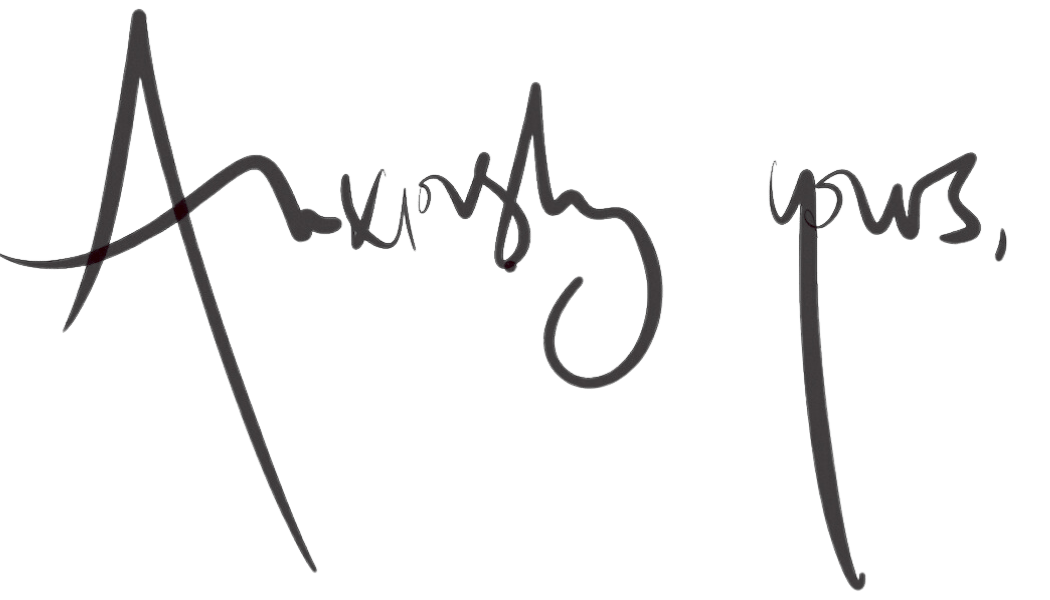
Amanda
P.S. Thank you for reading! This newsletter is my passion and livelihood; it thrives because of readers like you. If you've found solace, wisdom or insight here, please consider upgrading, and if you think a friend or family member could benefit, please feel free to share. Every bit helps, and I’m deeply grateful for your support. 💙
Quick note: Nope, I’m not a therapist—just someone who spent 25 years with undiagnosed panic disorder and 23 years in therapy. How to Live distills what I’ve learned through lived experience, therapy, and obsessive research—so you can skip the unnecessary suffering and better understand yourself.
Some links are affiliate links, meaning I earn a small commission at no extra cost to you. Every bit goes straight back into supporting this newsletter. Thank you!

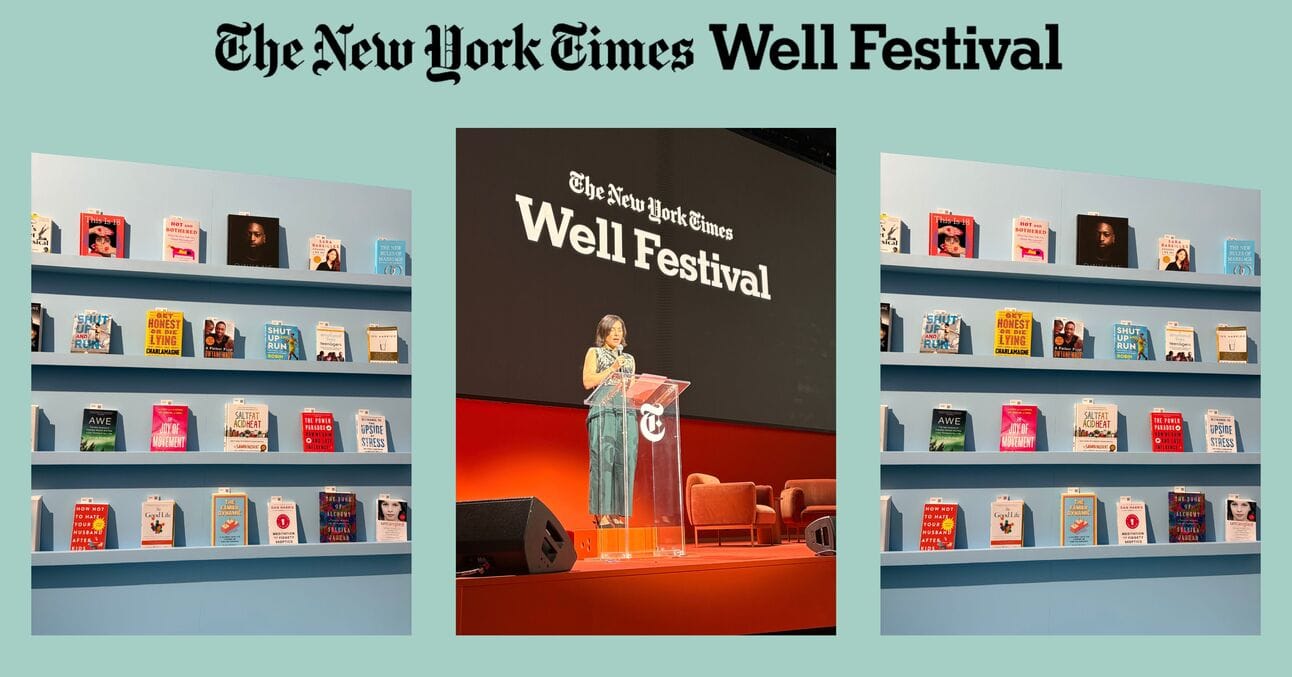


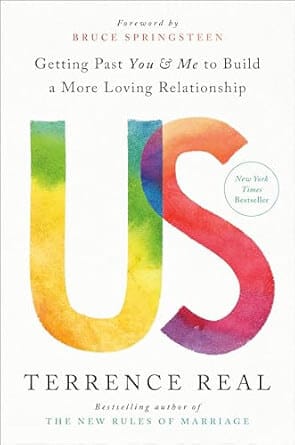
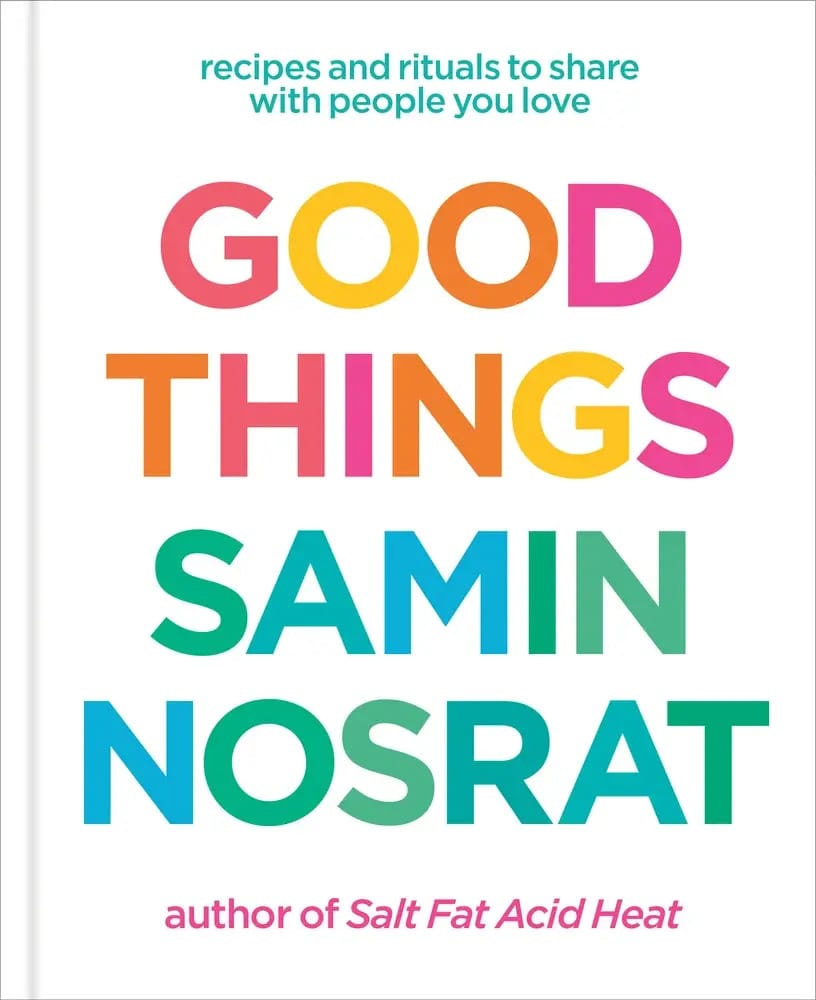
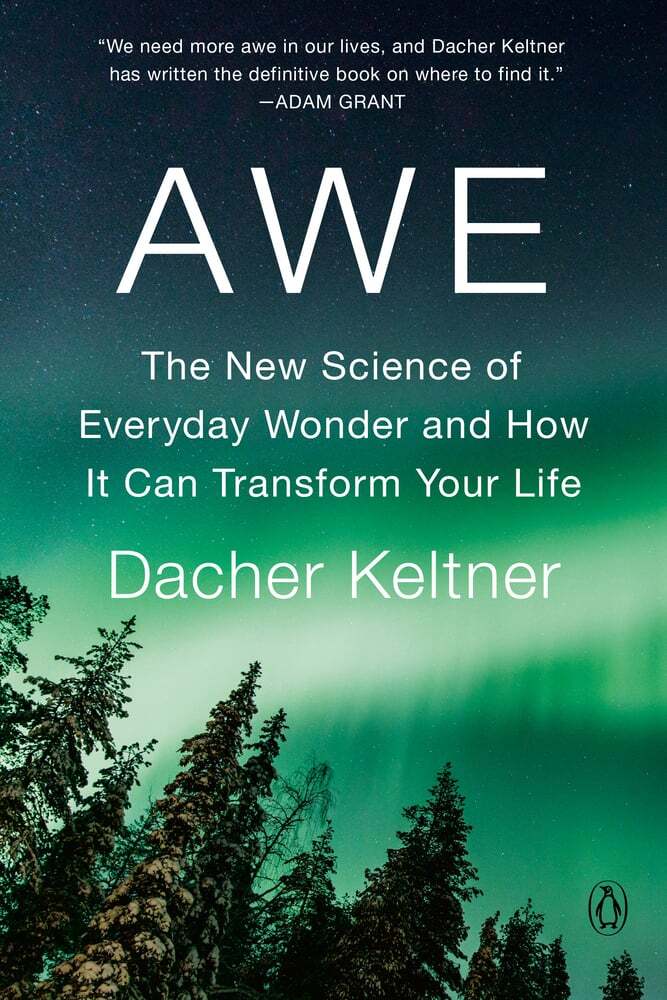

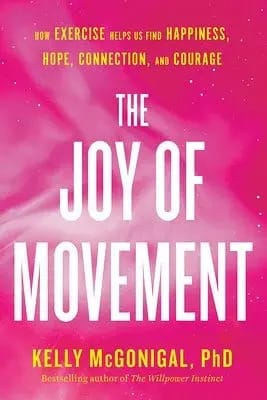
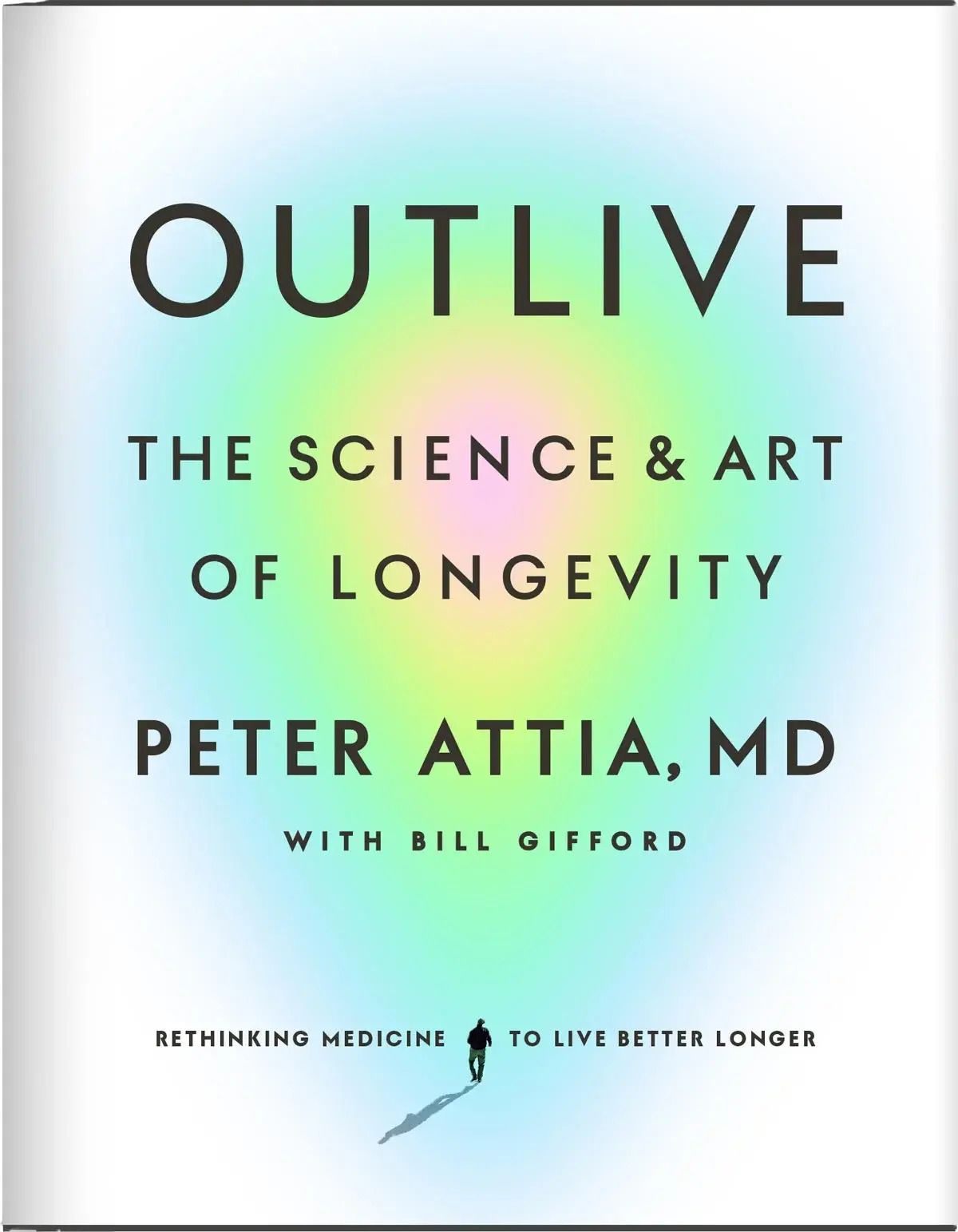
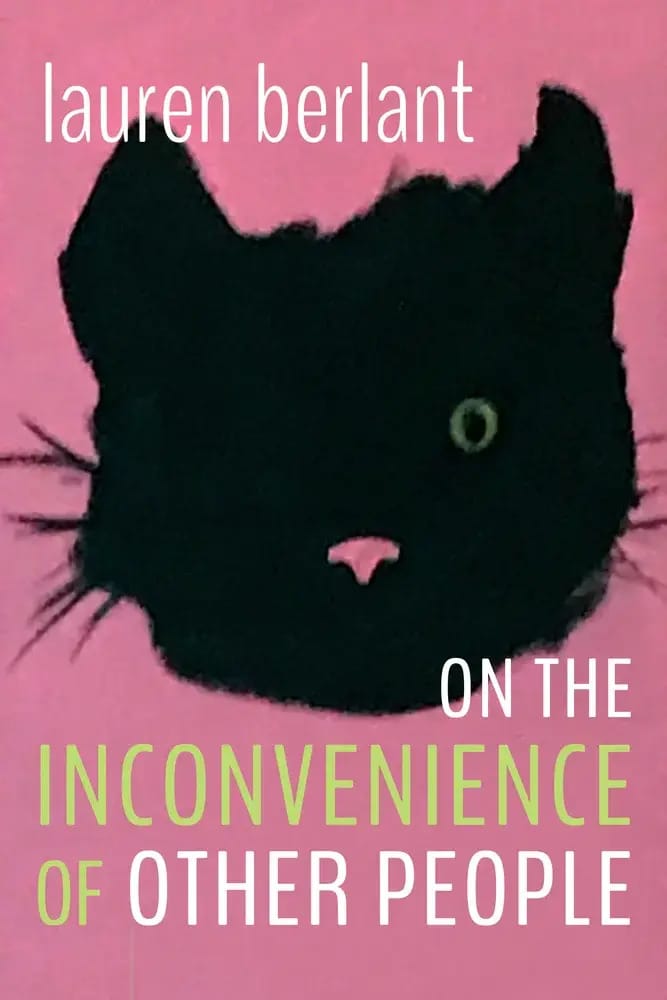
 Upgrade
Upgrade